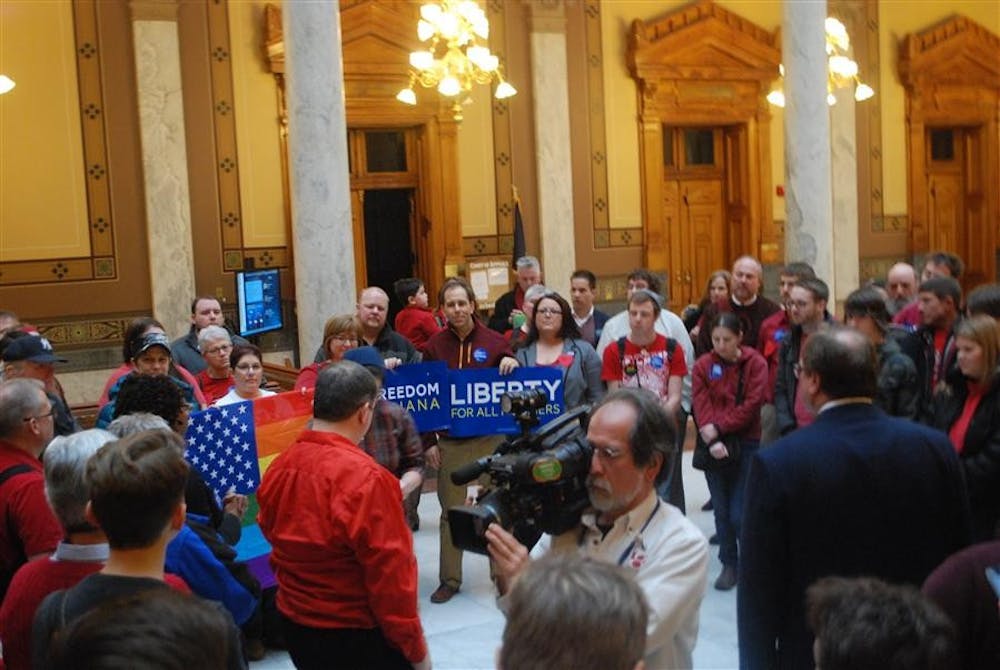A federal judge’s decision to grant the first legal same-sex marriage in Indiana won’t change state law, but a local representative says it could be the first step in ending a long-lasting political debate.
On April 10, United States District Court Judge Richard Young temporarily ordered the state to recognize the marriage between two Northwest Indiana women who were married in Massachusetts.
The order refers only to the two women, one of whom is terminally ill, so existing state statutes banning the recognition of same-sex marriages aren’t affected by the judge’s order.
The women are two of many suing the state in an effort to reverse state statutes banning same-sex marriages.
“There is no change in legal requirements for granting marriage licenses,” Public Information Officer Bryan Corbin from the attorney general’s office said in a statement. “County clerks are still prohibited by law from issuing marriage licenses to same-sex couples.”
By May 8, a preliminary injunction hearing will take place. Attorney General Greg Zoeller’s office will continue to represent the state in the process, Corbin said in a statement.
Yet State Rep. Matt Pierce, D-Bloomington, says it’s a step toward ending a debate that has dominated the legislature this year.
“All it does is point out the fact that the issue is ultimately, probably, going to be solved by the federal courts,” Pierce said. “Federal judges are ruling in favor of same-sex marriage.”
This conflict between judges and state legislatures changing marriage policy has been at the center of the fray about a proposed Indiana constitutional amendment to solidify the existing same-sex marriage ban.
For 10 years, Indiana legislators have grappled with the amendment. This spring, legislators delayed it by passing a watered-down version.
“It began when unelected judges started interpreting the people’s statutes and changing what they said,” Sen. Michael Young, R-Indianapolis, said during the final debate about the amendment, called House Joint Resolution 3. “I’d rather have 6 million people decide this than one judge.”
Before HJR 3 could become law, the General Assembly would have to approve it again before presenting it to the public on a ballot.
Legislators haven’t had much discussion about how the court case could factor into the political debate because they aren’t in session right now.
But Pierce said by the time the General Assembly considers the issue again next session, he thinks the courts might already have settled the debate.
“It may be the case that no matter what Indiana puts in its constitution, the federal courts my very well rule that it violates the federal constitution, which supersedes state law,” he said.
Same-sex case doesn't change law

Get stories like this in your inbox
Subscribe



